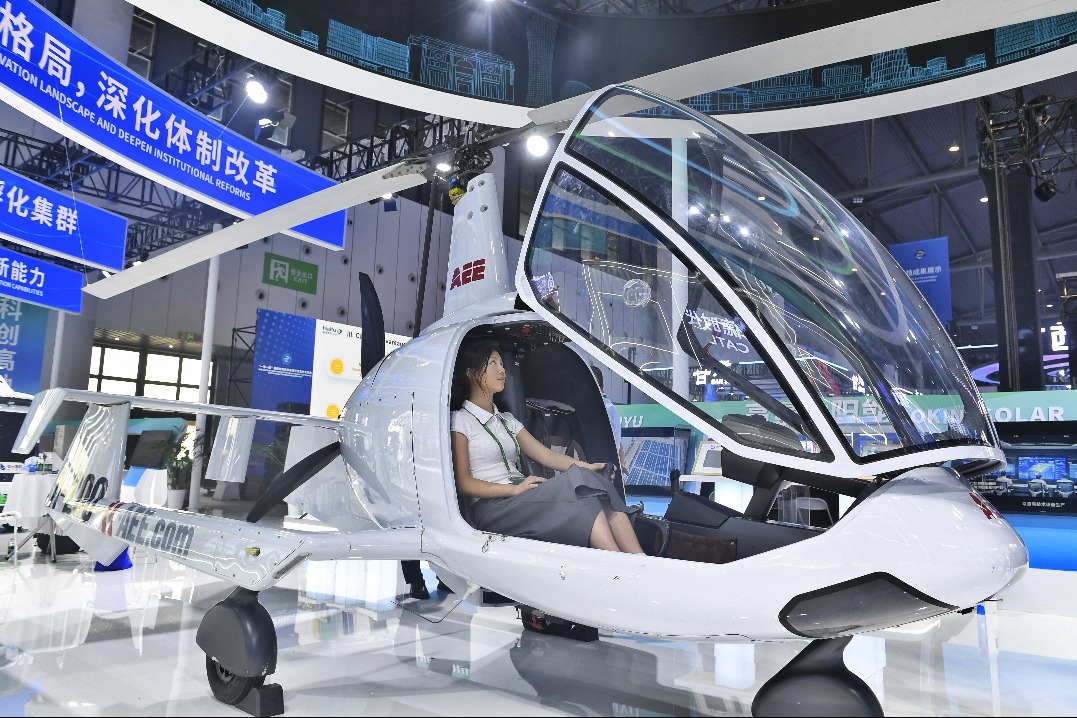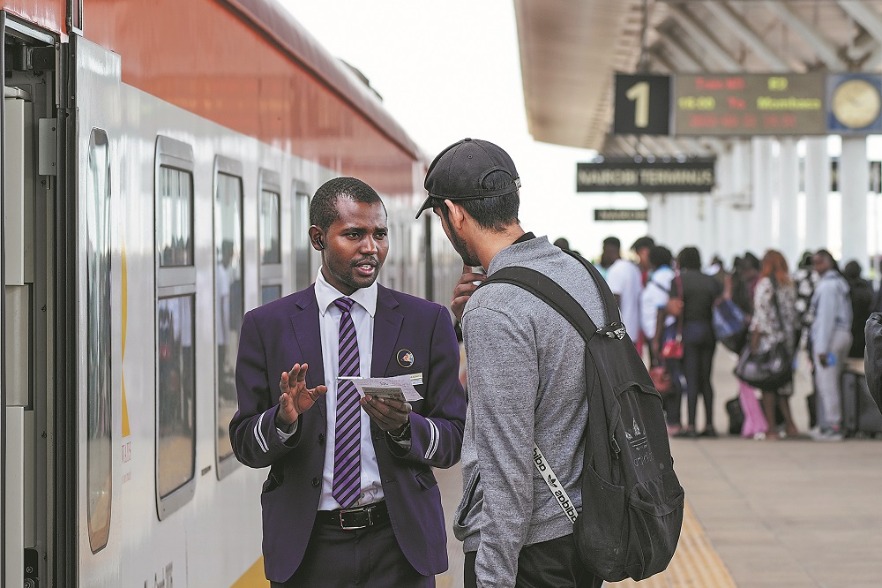Chinese Premier's Statements on Global Economy & Trade at Summer Davos
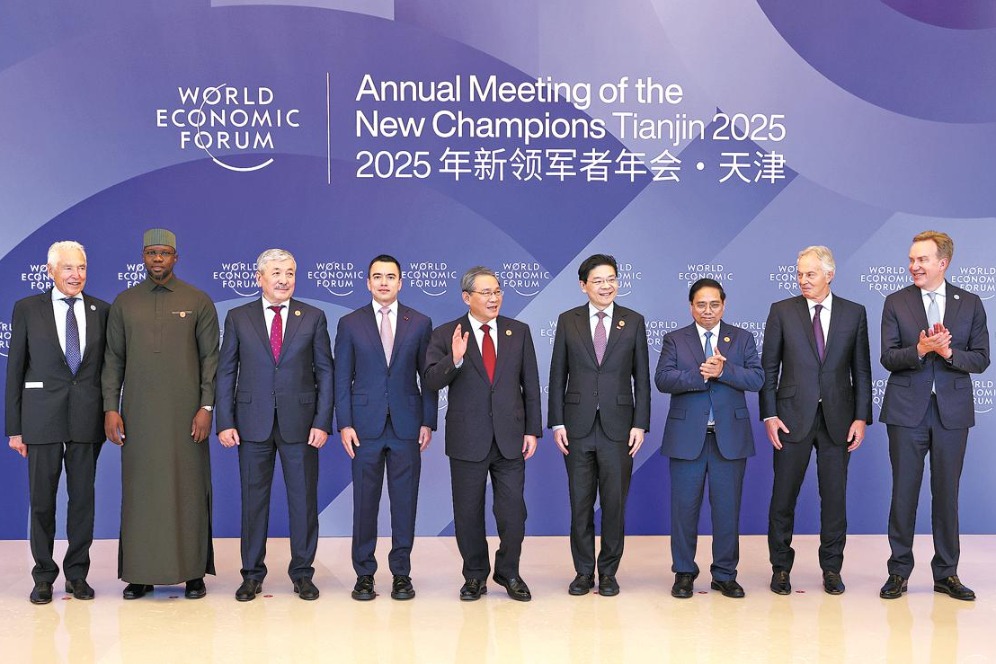
Premier Li Qiang engaged in a series of high-level diplomatic meetings and addressed the 16th Annual Meeting of the New Champions, also known as the Summer Davos, in Tianjin, reaffirming China's commitment to global cooperation, free trade, and stable industrial and supply chains. These efforts underscore China's dedication to jointly pursuing modernization through pragmatic and mutually beneficial partnerships with various countries.
During his meeting with Ecuadorian President Daniel Noboa in Beijing, Premier Li hailed the strong development of China-Ecuador ties, expressing China's readiness to expand mutually beneficial cooperation and deepen their comprehensive strategic partnership. He emphasized the importance of aligning development strategies, enhancing cooperation under the Belt and Road Initiative, expanding bilateral trade, and strengthening partnerships in clean energy, infrastructure, and finance. Li also welcomed more high-quality Ecuadorian products into the Chinese market and stressed the need for strengthened communication and coordination in multilateral mechanisms like the United Nations to safeguard world peace and development. President Noboa acknowledged China as Ecuador's second-largest trading partner, highlighting the fruitful results of their cooperation and reaffirming Ecuador's commitment to jointly addressing common challenges.
In Tianjin, Premier Li met with Kyrgyz Prime Minister Adylbek Aleshovich Kasymaliev, noting the geographic proximity and industrial complementarity between their nations. Li urged the effective use of the Intergovernmental Commission on Trade and Economic Cooperation mechanism to achieve high-level agreements on trade in services and investment. He called for advancing interconnectivity projects, specifically mentioning the China-Kyrgyzstan-Uzbekistan Railway and the China-Kyrgyzstan Friendship Bridge, and fostering cooperation in emerging fields such as clean energy, electric vehicles, artificial intelligence, and cross-border e-commerce. Li also expressed China's willingness to enhance multilateral coordination with Kyrgyzstan, strengthen the China-Central Asia cooperation mechanism, and promote achievements within the Shanghai Cooperation Organization framework, while jointly opposing unilateralism and protectionism. Prime Minister Kasymaliev affirmed that Kyrgyzstan-China relations are at their historical best and reiterated Kyrgyzstan's adherence to the one-China principle, firmly supporting China's positions on issues concerning Taiwan, Xinjiang, Xizang, and Hong Kong.
Premier Li also held discussions with Vietnamese Prime Minister Pham Minh Chinh, stressing the need for China and Vietnam to unite more closely, strengthen strategic communication, and deepen mutually beneficial cooperation amidst increasing global instability. He proposed accelerating the alignment of development strategies, promoting the connectivity of China-Vietnam railways, enhancing market and industry integration, and expanding cooperation in AI, the digital economy, and green development to foster new drivers for economic growth. Li welcomed Vietnam's potential partnership with BRICS and advocated for joint efforts to uphold free trade and the multilateral trading system, promoting an equal and orderly multipolar world and inclusive economic globalization. Prime Minister Chinh expressed Vietnam's firm support for President Xi Jinping's three major global initiatives and its desire to strengthen multilateral coordination with China to safeguard common interests.
The 16th Annual Meeting of the New Champions, themed "Entrepreneurship for a New Era," gathered over 1,700 leading figures from more than 90 countries and regions in Tianjin from June 24 to 26. Addressing the opening plenary, Premier Li Qiang underscored the profound changes in the international economic and trade landscape, asserting China's confidence and capability in maintaining rapid economic growth. He affirmed China's willingness to actively contribute to tackling the difficulties and challenges facing the global economy, emphasizing how entrepreneurship and emerging technologies can unlock more dynamic and resilient economies.
You may also like...
In the Shadows of the Signal: How Africa is Fighting a War It Cannot See

The article discusses the growing threat of cyberattacks in Africa, likening it to a "quiet war" being waged through dig...
Beyond Fintech, A Continent on the Rise

Africa's tech landscape is rapidly diversifying beyond fintech. Discover how innovation in sectors like AI, health tech,...
Should Religion Still Dictate Morality in a Secular Age?

This bold essay unpacks the complex relationship between faith, law, and public life—exploring where religion uplifts mo...
Africa’s AI Moment: Are We Innovating or Just Consuming?

As AI reshapes Africa’s digital landscape, the continent stands at a crossroads: Will it lead innovation or remain a tes...
The Rise of AfroAnimation: How African Studios Are Telling Our Stories With Global Appeal
(26).jpeg)
African animation is breaking boundaries as studios across the continent craft vibrant, culturally-rooted stories with g...
Digital Dakar: Why Senegal Is Africa’s Next Fintech Capital

Senegal’s capital, Dakar, is emerging as Africa’s next fintech powerhouse, driven by mobile money innovations, a youthfu...
The Global South Doesn’t Need a Savior: It Needs Equity
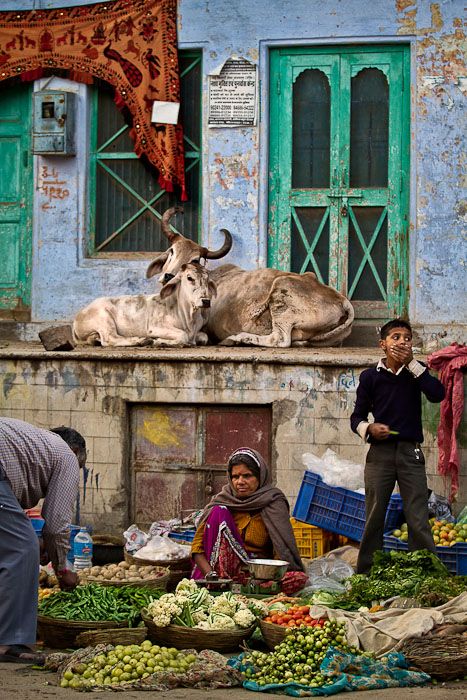
This incisive essay dismantles the outdated saviour complex, calling for a bold shift from patronising charity to genuin...
The Strangers Next Door: A New Dilemma at Africa’s Threshold
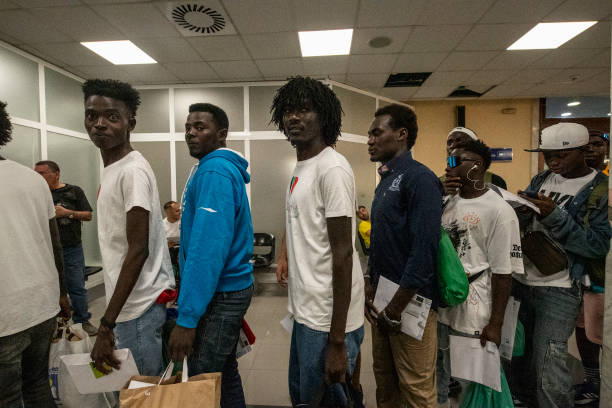
The article discusses the deportation of African nationals by the United States to eSwatini, a small southern African ki...

